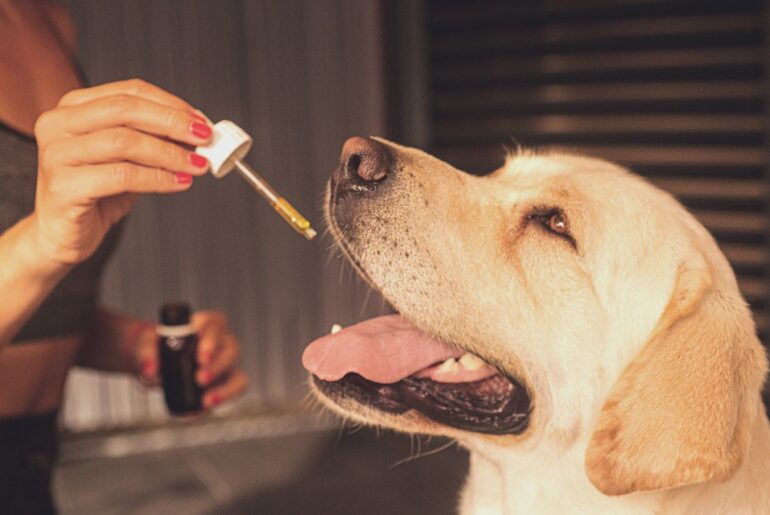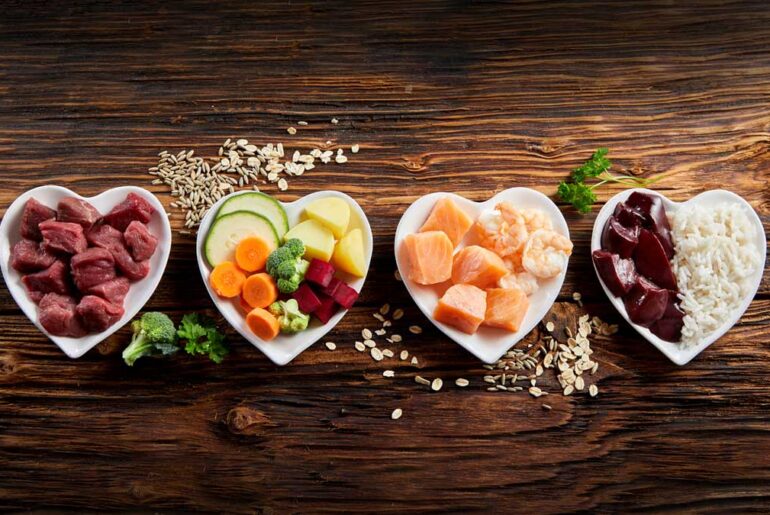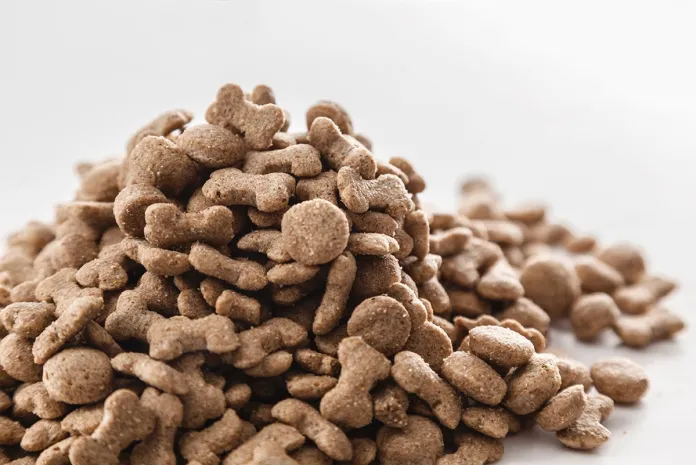A dog’s diet is very important for its health and well-being. A healthy, balanced diet will help your dog live a longer life and maintain a healthier weight.
You should feed your dog food that is appropriate for their age, size, and activity level. You can also give them treats in moderation as long as they do not contain any of the following ingredients: chocolate, raisins, grapes, onions, or garlic.
What Do You Mean By Healthy Diet Food For your Dog?
A healthy diet for dogs is the best way to ensure that your dog is living a happy, healthy life. The best way to start off is by reading the ingredients and labels of any food you are considering.
There are a few important things to look for when considering what kind of food you want to feed your dog. The first thing you want to do is make sure that the food has meat as one of its main ingredients. This will ensure that your dog is getting all of the protein it needs in order to grow and maintain muscle mass. You also want to make sure that there are no fillers or preservatives in the food, as these can be harmful to your pet’s health.
What Healthy Food You Should Give To Your Dog?
There are many healthy food that you can give to your dog. However, it is important to know the right food for your dog. Some people have a misconception that dogs should not eat vegetables and fruits. However, this is not true because dogs can eat these foods too.
Every dog has its own preference of what they like to eat and what they don’t like to eat. It is always best if you offer them a variety of food so that they can try different things and see which one they like the most.
Some of the healthy foods you should give your dog are carrots, broccoli, apples, blueberries, bananas, and oranges.
What Generally do Dogs Love To Eat?
Dogs are carnivores and they need a lot of protein in their diet. They also need to have the right balance of fats and carbohydrates. Dogs need a lot of calcium for their bones and teeth.
How Much Your Dog should Eat On Daily Basis?
The amount of food that your dog should eat on a daily basis varies depending on their size and activity level.
Large breeds:
A large breed dog needs about 2-3 cups of food a day, which is about the same amount as a human. They are also recommended to eat two meals per day.
Medium breeds:
Medium breeds need about 1-2 cups of food per day and should be fed once or twice a day.
Small Breeds:
Small breed dogs need about 1/4 cup of food per meal, which is about the same as a human child. They can be fed once or twice a day.
What is Balanced Diet Food For Your Dog?
A balanced diet is the key to a healthy life. It’s important for our pets too! What is balanced diet food for your dog?
The question of what is balanced diet food for your dog can be answered by looking at the nutritional needs of dogs. Dogs need protein, fat, carbohydrates, and vitamin and minerals. A good way to start is by feeding them raw meat or meat-based products like eggs or beef. It’s also important to feed them vegetables, fruits, and dairy products as well as grains like rice or oats.
what Are The Sources Of Protein In Your Dog’s Food?
Protein is needed for the growth and repair of muscles, organs, and skin. Protein also helps with the production of hormones and enzymes. There are many sources of protein in your dog’s food.
1. Meat: Meat is a good source of protein for your dog because it provides essential amino acids like taurine and carnitine which are important for their health.
2. Fish: Fish like salmon is a good source of omega 3 fatty acids which help maintain healthy skin and coat on your dog.
3. Eggs: eggs are a complete source of protein as they provide all nine essential amino acids that dogs need to survive including taurine and carnitine for their health
4. Dairy products: dairy products like cheese or yogurt are great sources of protein, calcium, and vitamin D.
How Much Protein is Required For your Dog?
Protein is a vital part of your dog’s diet. It provides all the amino acids that are essential for proper development and growth.
It is recommended to feed your dog a diet that has at least 20% protein, but this can vary depending on age and breed.
The amount of protein in a diet will depend on the size of the dog, age, and breed. For instance, large breed puppies need around 30% more protein than small-breed puppies do.
Sources Of Vitamins In your Dog’s Food:
There are many sources of vitamins in your dog’s food. Some of these sources include meat, vegetables, and fruit.
Dogs need a lot of vitamins to stay healthy. Some of the most important vitamins for dogs are vitamins A, C, and E. These vitamins help with the immune system, skin and coat health, good vision and eyesight, heart health, brain function, and healthy teeth.
which Vitamins are Needed To Your Dog?
Vitamins are essential to a dog’s health.
Vitamins are important for your dog’s health. Vitamins can help your dog maintain a healthy immune system, and they also help with muscle function and metabolism.
List Of vitamins required for Your Dog:
- Vitamin A
- Vitamin B1 (thiamine)
- Vitamin B2 (riboflavin)
- Vitamin C (ascorbic acid)
- Vitamin D3
- Vitamin E
- Biotin
- Pantothenic acid (vitamin B5)
- Niacin (vitamin B3)
Folic acid, Vitamin B9 or folate, Vitamin Methylfolate or 5-MTHF, Vitamin B11 or ascorbic acid, Vitamin H or biotin.
Sources Of Carbohydrates In Your Dog’s Food:
There are many sources of carbohydrates in your dog’s food.
The most common sources are starch, sugar, and fiber.
Starch is the most common source of carbohydrates in dog food. It is found in grains, vegetables, and legumes.
Sugar is also a major source of carbohydrates in dog foods. It can be found in fruits and vegetables or added to the food as a sweetener. Fiber is another carbohydrate source that can be found naturally occurring or added to the food as a supplement.
Carbohydrates play an important role in your dog’s diet because they provide energy for the body and help maintain blood sugar levels, which are necessary for life-sustaining functions like digestion, circulation, and respiration.
Sources Of fibers In Dog’s Food:
Dogs need a diet rich in protein, vitamins, and minerals. This is why it is important to know the sources of fibers in dog food.
The first source of fiber in dog food is dried beet pulp. It provides soluble and insoluble fiber to dogs. The second source of fiber in dog food is dried rice bran which provides soluble and insoluble fiber to dogs as well. The third source of fiber in dog food is soybean hulls which provide insoluble fiber only to dogs.
The fourth source of fiber in dog food is wheat middlings which provide both soluble and insoluble fibers to dogs. The fifth source of fiber in dog food is oat hulls which provide both soluble and insoluble fibers to dogs as well. The sixth and final sources of dietary fiber in dog food are ground flaxseed, dried apples, and pumpkin which offer some benefits that may be more appealing to your dog.
Sources Of Fat In Your Dog’s Food:
A dog’s diet should consist of a balance of protein, fat, and carbohydrates. Some sources of fat in your dog’s food include:
-Omega-3 fatty acids: These are found in flaxseed oil, walnuts, salmon, and other types of fish. Omega-3 fatty acids are important for the growth and development of your pet’s brain and visual system.
-Fatty Acids: These are found in meat products such as beef and chicken skin. They also help to improve your pet’s coat by making it shinier.
-DHA: This is an Omega 3 fatty acid that is found in eggs, soybeans, algae oil, mackerel, herring, or other types of fish. DHA is essential for the development of the brain and eyes in children.
Is the amount Of Food needed depend on the Age of your Dog?
The amount of food your dog needs is not dependent on their age. The amount of food your dog needs depends on two things: their size and their activity level.
Which Breed Of dogs Require More Food?
This article will help you to find out which breed of dog requires more food.
Pitbulls require more food than any other breed because they are large and muscular dogs. This means that they need a lot of energy to maintain their body size and weight.
Labradors require the most food per day because they have the largest stomach capacity in all breeds of dogs. They also have a high metabolism, so they need plenty of food to keep up with their energy levels.
Dachshunds are not as big as Pitbulls or labs, but still require a lot of food because they are an energetic breed that needs lots of fuel for their long, fast-paced walks each day.
Which Food Should Be Avoided In Your Dog’s Diet?
Dogs are not humans, and the same food that is healthy for humans may not be good for dogs.
The following table lists the foods that should be avoided in a dog’s diet:
Table: Foods to Avoid in Dog’s Diet
- Dairy products
- Citrus fruits
- Fried foods
- Raw eggs or egg whites
- Raisins or grapes
Amazing Tips To Improve Your Dog’s Diet:
The following tips will help you improve your dog’s diet.
1. Feed the right amount of food:
Feeding your dog too much can lead to obesity, and feeding them too little can lead to malnutrition. The best way to find out how much food your dog needs is by consulting a veterinarian or a certified animal nutritionist. You should also take into account the age, weight, activity level, and breed of your pet when determining their needs.
2. Consider what you feed them:
When it comes to choosing food for your furry friend, there are many options available and it can be hard to know which one is best for them. It is important that you do some research on the type of food that is best for their needs before making a purchase.





